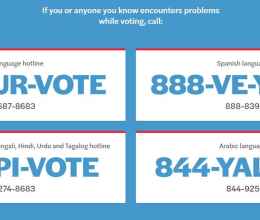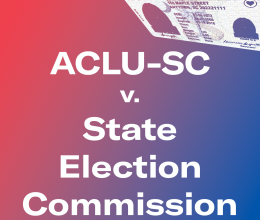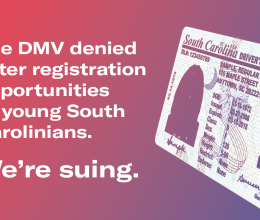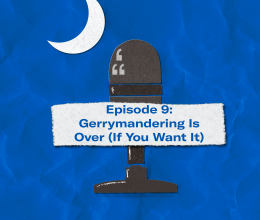
Letter to the Editor
February 24, 2013. Rock Hill Herald. On Wednesday, at the end of Black History Month, one of the landmark pieces of civil rights legislation in our country’s history will be on trial: the Voting Rights Act (VRA). The U.S. Supreme Court will hear oral arguments in Shelby County (Ala.) v. Holder, a case that challenges the VRA’s Section 5.
That requires Alabama and South Carolina and other jurisdictions with histories of discrimination in voting to get advance approval or “pre-clearance” for any changes in their voting practices, to ensure they do not have a discriminatory purpose or effect.
Poll taxes and literacy tests were among the many discriminatory laws that were enforced to keep African Americans from voting in the past. To tear down these historical barriers and to protect the guarantee that the right to vote is not denied “on account of race, color or previous condition of servitude,” on Aug. 6, 1965, President Lyndon Johnson signed the Voting Rights Act into law. The Act has been renewed and amended by Congress four times, the most recent being a bipartisan 25-year extension signed into law by President George W. Bush in 2006.
If the challenge to Section 5 of the VRA succeeds, it will be easier for politicians to redraw districts in ways that prevent minority neighborhoods from having a say in who represents them. It will make it harder for elderly Southerners who were born at home to midwives and lack a birth certificate to vote.
It will make it harder to register new voters, particularly of color, and easier to eliminate ballot access measures like early voting, which make it possible for single working parents to cast a ballot.
Although we have made significant gains in voting rights, discrimination at the polls persists today and unfortunately is not yet a relic of the past. After record minority voter registration and turnout in 2008, we saw widespread efforts to suppress the vote via photo ID requirements, restrictions to registration and cuts to early voting, all of which measures target voters who have been historically disfranchised.
The South Carolina voter photo ID law potentially disfranchised a great many South Carolinians still impacted by the ugly history of discrimination. ACLU’s plaintiff in our challenge to the law, Delores Freelon, lacked the documentation of her birth needed to obtain a photo ID prior to the November 2012 election.
In the municipal elections in Greenville in January of this year, a 100-year old man was required to vote with a provisional ballot because he did not have a photo ID. Absent any evidence of voter impersonation, our state imposed yet another unnecessary hurdle on such voters before they could exercise their right to vote – the critical right that protects all other rights in our democracy.
The VRA has been an indispensable tool for protecting the voting rights of racial minorities in our modern history. We may all look forward to a day when everyone’s right to vote is guaranteed and discrimination is a relic of the past. But until that day comes, we need the Voting Rights Act.






